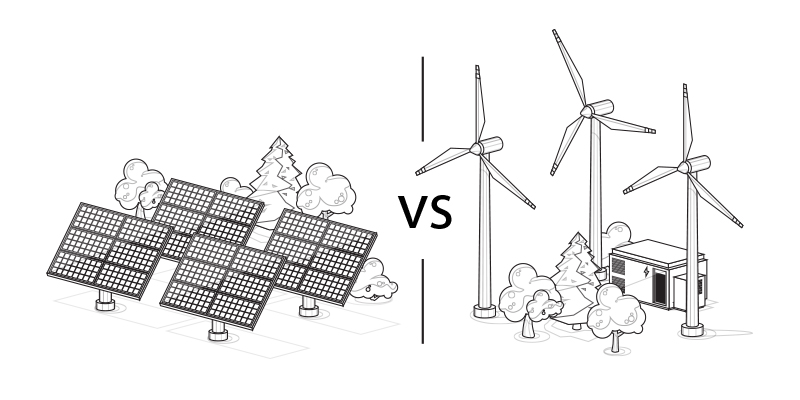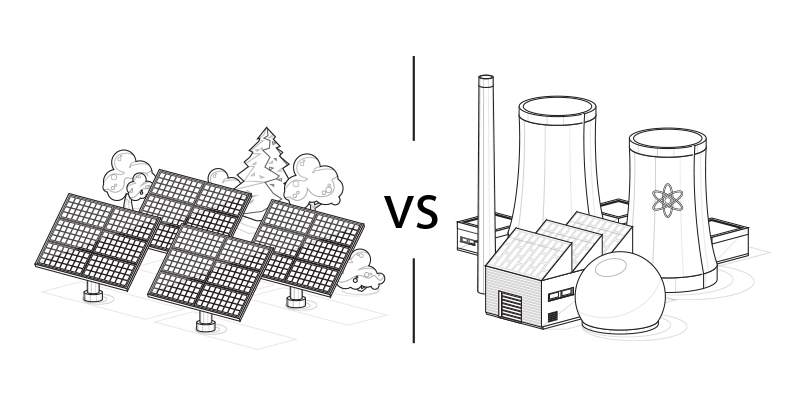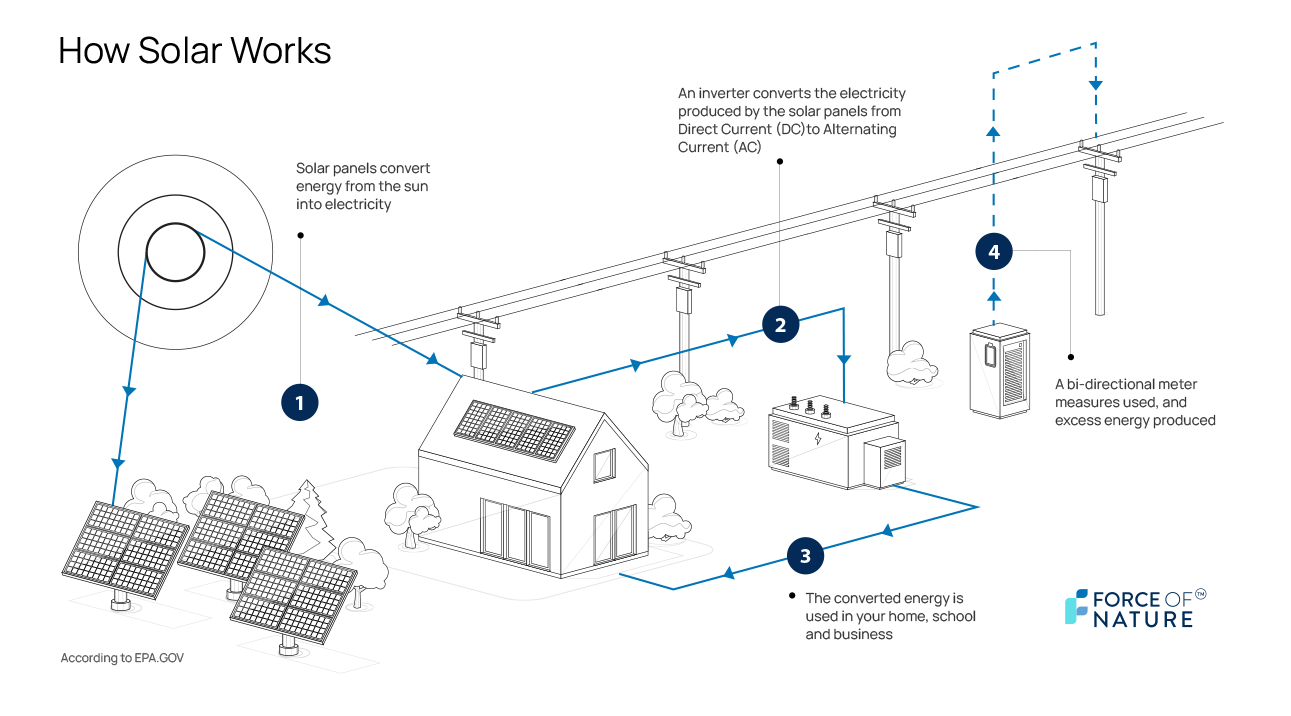Education
Installing a solar panel system in your home can help you save money, reduce your carbon footprint, and increase your home’s value. But how exactly do solar panels work?
How Solar Energy Works
Understanding the technology behind solar energy can help you make an informed decision about whether it’s the right choice for you.
01
Solar Panels Convert Energy to Electricity
Solar panels are made up of photovoltaic (PV) cells that convert sunlight into direct current (DC) electricity. These PV cells are made up of layers of silicon and other materials that create an electric field. When sunlight hits the PV cells, it excites the electrons in the silicon, causing them to move around and generate an electric current. This direct current electricity flows from the solar panels to the inverter.
02
An Inverter Converts the Electricity
Once the solar panels have generated DC electricity, it’s time for the inverter to do its job. The inverter is responsible for converting the DC electricity into alternating current (AC) electricity that can be used by your home’s appliances and devices. The AC electricity is the same type of power that you get from the utility company. Inverters come in various sizes and types, and selecting the right one is crucial for optimal performance of your solar energy system.
03
You Use the Converted Energy
Once the AC electricity is generated, you and your household put it to use. Any electricity generated by the solar panels that your home doesn’t use is sent back to the grid, where it can be used by others. When your home needs more electricity than what your solar panels are generating, you can draw from the grid just as you would normally. The beauty of solar energy is that you can use as much or as little of the grid’s electricity as you need, depending on your energy needs.
04
Bi-Directional Meter Measures Energy
In order to track how much electricity your solar energy system generates and how much you use, a bi-directional meter is installed. This type of meter measures the flow of electricity in two directions: from the grid to your home and from your home to the grid. This allows your utility company to accurately credit you for any excess electricity your solar panels generate that is sent back to the grid. It also allows you to track your energy usage and ensure that your solar energy system is performing optimally.
Solar Compared to Other Power Sources
When it comes to sustainable and renewable energy sources, solar power is often at the forefront of discussions. It’s an abundant and reliable source of energy that is increasingly becoming more accessible to homeowners and businesses alike. But how does it compare to other popular renewable energy sources like wind power, and traditional energy sources such as coal and oil?

Solar Vs Wind Energy
Compared to wind power, solar power has a few advantages. Solar power systems are typically easier to install and maintain than turbines, and they are less affected by changes in wind speed. Wind turbines can also produce more noise than solar panels, making them less ideal for residential areas.

Solar Vs Traditional Energy
Unlike traditional energy sources that require constant and expensive maintenance, solar power systems require little maintenance once installed. Solar power is also a clean and renewable source of energy, meaning it does not release harmful pollutants or greenhouse gasses into the atmosphere.
What You’ll Save With Solar
Investing in a solar panel system can provide significant financial benefits for homeowners. By generating your own electricity, you can reduce or even eliminate your reliance on expensive grid power, which can result in significant savings on your monthly energy bills. In addition, solar panels have a long lifespan and require minimal maintenance, which means you’ll save even more money over the long term.
How to Calculate Potential Savings
So, how do you calculate how much money you’ll save with solar panels? To start, you’ll need to know your annual energy usage and your utility rate.
Once you have that information, you can use our solar calculator to discover the savings available through solar.

Annual Energy Usage
This is the amount of energy you use in a year, measured in kilowatt-hours (kWh). You can find this information on your utility bill.

Utility Rate
This is the cost per kWh that you pay your utility company for electricity. You can also find this information on your utility bill.
Have More Questions About Solar Energy?
Still not sure how solar energy works? We have compiled all the information you need about solar energy on our FAQ page.

